Expert support to help you manage your money
We’re here for more than your housing needs, and can help you look after your family’s wellbeing too. One of the ways we can do that is through providing expert advice and sympathetic support on any financial matters.
Our Tenancy Sustainment team is on hand to help you with any money worries. It might be getting to grips with applying for benefits, how to approach your local council and government agencies, or some advice on managing your money, day to day. Whatever you need help with, our confidential (and free) advice and support is tailored to your specific needs.
You can also contact your local Citizens Advice or local council for help and support.
Not receiving Universal Credit? Read this.
The UK Government has introduced Universal Credit for people who are on a low income, whether in work or not, and replaces the following benefits:
- Income based Jobseekers Allowance
- Income related Employment and Support Allowance
- Income Support
- Housing Benefit
- Working Tax Credit
- Child Tax Credit
The Government plan to move everyone on working age benefits over to Universal Credit between November 2020 and March 2025.
Under current plans, the DWP will write to you to let you know your old-style (legacy) benefits are coming to an end and that you will need to make a new claim for Universal Credit. If you don’t make a new claim within a certain amount of time, you will lose your old benefits and not receive any new benefits.
Currently you will only receive Universal Credit if you are making a new claim for benefits or have a change of circumstances.
Budget planner
Doing a budget is a positive and important step. It helps you understand what money you have coming in and out, and where you may be able to save on costs.
We really like this one from National Debtline.
Below are some of the benefits you might be entitled to:
How do I claim Universal Credit?
You can only apply for Universal Credit online. The Department for Work and Pensions have made a video explaining how to open an account online. If you do not have internet access at home, your local Job Centre Plus will be able to help make your claim. You can also visit your local library, Citizens Advice Bureau or contact our Tenancy Sustainment Team.
What do I need to apply?
- Your email address
- Your mobile phone number
- Your address and postcode
- Your National Insurance number
- Your housing details, rent and service charge
- Details about people who live with you
- Details about income & savings
- Information about your health
- Your bank details
How will my rent be paid?
Your rent, shown as ‘Housing’ on your claim, will be paid with your Universal Credit and will be paid directly to you. However, in Scotland, you can request to have the rent paid directly to your landlord through your Universal Credit Journal.
Universal Credit will take at least a month to pass on your rent money to Cairn and your rent account will show as being in arrears during this time. It’s always a good idea to inform your Housing Officer when you apply for Universal Credit so that they are aware of any potential changes to your rent account.
How much will I get?
How much you receive will depend on your circumstances and income during your fixed monthly assessment period, so the amount you get could be different each month. This website gives you an idea of potential earnings.
Conditionality
Everyone who claims Universal Credit will need to accept a ‘claimant commitment’. This sets out what sort of work related activity you may be expected to do to receive your monthly payment. It is tailored to your specific circumstances.
It’s important that you make them aware of any change in your circumstances that might affect your ability to look for work. If you don’t keep to the terms of your agreement, you may be sanctioned which will result in your Universal Credit payment being reduced or even stopped.
What happens if I’m denied Universal Credit or sanctioned?
You have the right to appeal a sanction imposed by DWP if you think this is unreasonable. You must ask for a Mandatory Reconsideration within one month of being notified of the sanction. You can do this by phone or putting an entry in your Journal.
If your Mandatory Reconsideration is turned down you have the right to appeal within one month of the Mandatory Reconsideration notice. You should seek advice and assistance when going to appeal to ensure the best possible outcome.
If your sanction means you have reduced or no income you can request a Hardship Payment by calling the Universal Credit Helpline on 0800 328 9344. You can also apply for a Scottish Welfare Fund Grant through your local Council.
Contact our Tenancy Sustainment Team if you need further help, for example, food parcels or help claiming other benefits.
Useful links
General advice and information Universal Credit
Changes that might trigger a Universal Credit claim
A selection of videos on Universal Credit
Budgeting and managing your money
Find your local Citizens Advice Bureau
For more information or advice on Universal Credit please contact our Tenancy Sustainment team, your local Citizens Advice or your local council’s welfare benefits service. You can also find out more by reading this leaflet by the Scottish Government or going to this website.
Follow us on Facebook for up to date Universal Credit news.
Employment and Support Allowance (ESA)
This is a benefit for people with an illness or disability and can be claimed with or instead of Universal Credit depending on your National Insurance contributions. More information is available here.
Disability Living Allowance (DLA)
This is a benefit paid to people who have a long term illness or disability. Only children under the age of 16 and existing claimants can continue to claim Disability Living Allowance.
There are two parts to this benefit:
Mobility – this into account physical difficulties with walking or support you need to go out on your own
Care – this looks at any problems you have with personal care such as cooking, washing and dressing
Personal Independence Payment (PIP)
This benefit replaces Disability Living Allowance (DLA). It is designed to allow people under 65 with a long term health problem or disability to live as independently as possible.
There are two parts to this benefit:
Mobility – this takes into account physical difficulties with walking or support you need to go out on your own
Daily Living – this looks at any problems you have with things like cooking, washing and dressing, budgeting and social interaction
Attendance Allowance
This is a benefit paid to people age 65 or over who have a long term illness or disability and need help with their personal care. More information can be found here.
Working Tax Credit
Universal Credit has replaced most income related benefits. If you are currently in receipt of an old style income related benefit you can remain on this until you have a change of circumstances or are moved over to Universal Credit as part of the managed migration process.
Jobseekers Allowance (JSA)
This is a benefit for those looking for work and can be paid with, or instead of, Universal Credit depending on your National Insurance contributions. More information can be found here.
Housing Benefit
You cannot make a new claim for Housing Benefit unless you are in specified accommodation. Specified accommodation is temporary, emergency, supported or sheltered housing. Existing claims can continue until you have a change of circumstances or you are moved over to Universal Credit as part of the managed migration process. Everyone else should claim their housing costs through Universal Credit.
Council Tax Reduction
This is still claimed through your local Council and is not included with any other benefit. You can find your local Council here.
State Pension
The State Pension is based on your National Insurance contribution throughout your working life. The amount you are paid upon retirement will depend on the number of years you have contributed. It is not means tested and can be paid once you reach pensionable age.
You can check your pension entitlement here.
Pension Credit
This is an income based benefit available to people over qualifying age on a low income. Qualifying age for Pension Credit is different to state pension. In some cases you can claim pension credit before you qualify for your state pension. You can check the current qualifying age for Pension Credit here.
If you are part of a couple you must both be of Pension Credit Age to claim. If either of you are under Pension Credit Age then you will have to claim Universal Credit instead.
There are two types of Pension Credit:
Guarantee Credit – if your income falls below the amount the Government says you need to live on, Guarantee Credit will be paid to top up your income
Savings Credit – this is intended as an extra payment for people who have made modest savings for their retirement. Savings Credit is only available if you reached Pension Credit Age before 6 April 2016 and have a qualifying income. You can check your Pension Credit entitlement here.
Statutory Maternity Pay (SMP)
You may be able to get Statutory Maternity Pay when you stop work to have a baby. You do not have to repay this money if you decide not to return to work after your maternity leave ends.
SMP can start any time from the 11th week before your due date. Every woman has the right to take a full year off work for their maternity leave if they wish. It is important to remember that SMP will only be paid for 39 weeks. Find more information here.
Maternity Allowance
If you are not entitled to Statutory Maternity Pay, you may be able to claim Maternity Allowance.
You can get Maternity Allowance if you are working, self employed or recently stopped working. You can check your eligibility here.
Child Benefit
Child Benefit is a tax free payment available to most people responsible for a child or young person unless you earn more than £50,000 per year.
Child Benefit is paid to the person with main responsibility for the day to day care of the child. In most cases, this will be the mother of the child, however it may be claimed by another family member such as the father of the child or a grandparent if they are the main carer for the child.
Guidance on how to claim is available here.
Best Start Grant
If you are on certain benefits or tax credits, parents or carers can claim for extra financial support during the key early years of a child’s life. The grant comes in three parts:
- Pregnancy and baby payment – £600 on birth of first child (£300 for subsequent children)
- Early learning payment – £250 when child is between 2 and 3 years old to help with learning costs
- School age payment – £250 around the time child starts primary school.
To find out more and to apply visit here.
Warm Home Discount
The Warm Home Discount scheme (WHDS) offers a one off payment of £140 (inclusive of VAT) towards the energy bills of households that need it most in England, Scotland and Wales.
To check your eligibility click here.
Winter Fuel Payments
If you are of pension age you may receive a Winter Fuel payment from the Government of between £100 and £300. To check eligibility and apply click here.
Cold Weather Payment
If you are in receipt of a means tested benefit and your local weather is below 0 degrees for seven consecutive days then you may qualify for a Cold Weather Payment. Click here to check your eligibility.
If you have any questions about benefits or need advice or support, please get in touch with our Tenancy Sustainment team, who will be happy to help you.






